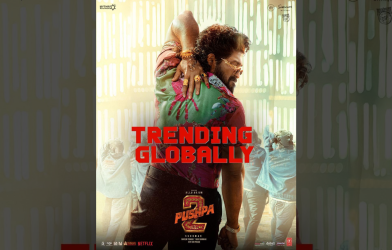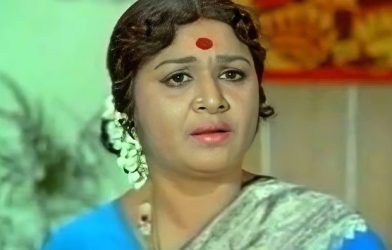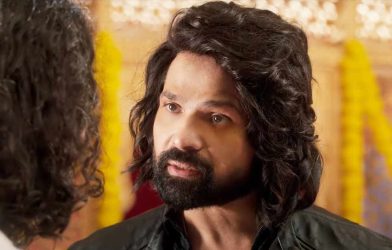When it comes to film festivals, Los Angeles seems to be cursed. This doesn’t make a ton of sense, considering Los Angeles is the home of Hollywood. And yet, unlike New York—which hosts the New York Film Festival every fall, along with other fests like Tribeca and DOC NYC—Los Angeles has faced a real festival drought in the past half-decade.
The Los Angeles Film Festival ran for 18 years, premiering titles like The Twilight Saga: Eclipse and Things Behind the Sun, before ending in 2018. Just last year, OutFest—an LGBTQ+-themed film festival that took place in the summer—faced serious financial trouble; its future is now unclear. That leaves events like Beyond Fest (a genre festival that spotlights horror, sci-fi and fantasy) and AFI Festival (which runs in the fall and usually hosts the Los Angeles premieres of Oscar-bait films)—but there’s an overall lack of a local film festival showcasing a broad range of independent and international features.
Now, filmmakers/movie aficionados Micah Gottlieb and Sarah Winshall are looking to change that with the new Los Angeles Festival of Movies, which runs April 4-7.
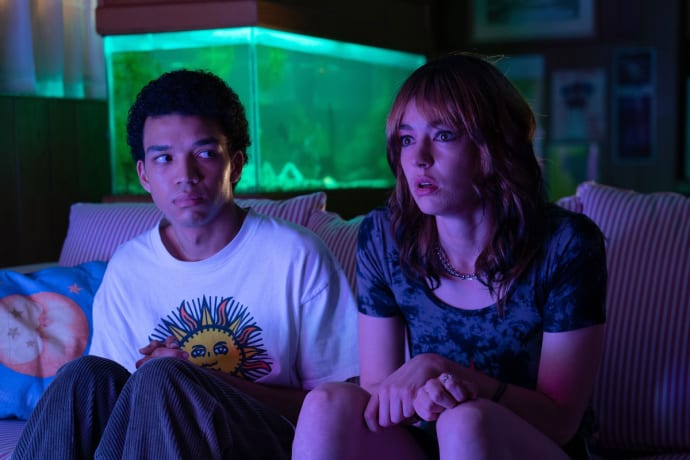
Justice Smith and Brigette Lundy-Paine in I Saw the TV Glow.
A24
“[The fest is] kind of a mixture of regional American independent films as well as international arthouse films and some key restorations that we were really excited about,” Gottlieb, who programmed the fest with Winshall, explains in an interview with The Daily Beast’s Obsessed over Zoom. “Some of our audience comes from the people who’ve been attending Mezzanine screenings over the last two years.” Gottlieb is the artistic director at Mezzanine, a nonprofit series devoted to screening independent and arthouse films from the past and present.
When the lineup for LAFM went live on March 7, it caused quite a stir online—particularly for hosting the premiere of comedian Conner O’Malley’s debut feature, Rap World. Almost all of the events and screenings, from Sundance favorite I Saw the TV Glow to a talkback with Kim Gordon, have since sold out. (More tickets, Gottlieb and Winshall stress, may become available at the door on the day of.)
“We’ve gotten a lot of positive feedback from people about the lineup—which, you know, we definitely wanted the lineup to be pretty eclectic,” Gottlieb says. “We’re really happy that people have been embracing this and are excited about it.”
Below, Gottlieb and Winshall explain how they got LAFM off the ground, how they’re challenging Hollywood, and how they hope the festival will evolve in the years to come.
What inspired you to start this festival, be it other fests, movies in particular, or ongoing trends in cinema?
Winshall: We definitely are taking inspiration from Filmex, which was a film festival that eventually became what is the American Cinemateque. They stopped doing it in the ’80s. But that was one of the things that [we looked at], when Micah and I sat down and said, “What do we want this to be?” that we looked at. We spent some time kind of flipping through old programs of theirs. There’s other festivals like New/Next in Maryland, or BAMcinemaFest, which I don’t think is happening right now, but was a really special program.
Gottlieb: I would also add True/False in Columbia, Missouri, which is an amazing documentary film festival. The unifying thread of all these festivals is that they feel curated and they have a distinct personality. They feel very audience-friendly and focused on upholding a certain strain of independent film that sometimes gets forgotten about within the usual machinations of the commercial film industry. We wanted to demonstrate that there is very much an audience in L.A. for these kinds of films that some may construe as “less commercial” but are still vital and taking risks.
How did you decide on calling the fest the Los Angeles Festival of Movies? I’m curious, because most festivals are deemed “film festivals.”
Micah Gottlieb: So, the festival is definitely a little bit tongue-in-cheek. There’s always this conversation about, “Do you call them movies, or do you call them films?” Everybody knows that L.A. is a movie town. This is where the Hollywood film industry lives, where the commercial film industry is centered. We felt that, even though this is a festival that is predominantly centered on independent and arthouse cinema, we still wanted people to have fun, and for these films to be legible and accessible.
Sarah Winshall: And we thought, there’s also something about “The Festival of”—like, we know there’s the Festival of Books. There’s these other “Festival ofs.” Instead of trying to put it into the tradition of, you know, “The Blah Blah Blah International Film Festival”—every place has that name—we wanted to kind of pull it into more of a framing where it’s a festival of movies. People are coming here to watch the movies. We’re not a film festival where you’re networking, necessarily. I mean, if that happens, I won’t get mad at you. But the idea is that it’s a showcase of movies, and we’re in LA.
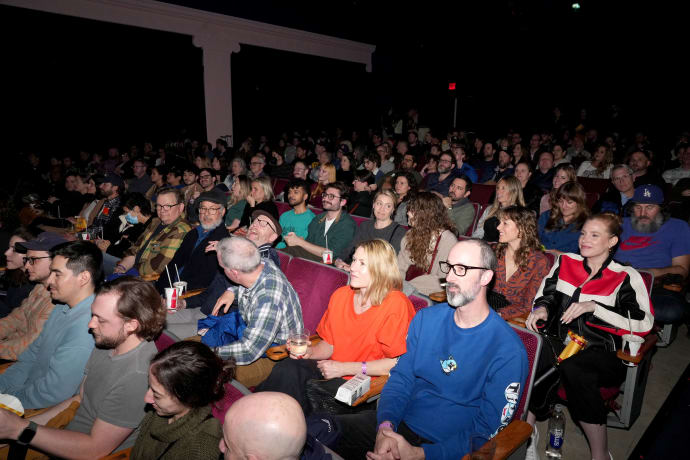
Family and Friends Screening at Vidiots Foundation
Jeff Kravitz/FilmMagic for Max
How has the initial reaction to the fest been around LA, from what you’ve been hearing?
Winshall: It’s amazing how quickly things have been selling out. We really put this thing together very quickly on our end. It’s definitely a bit of a scrappy endeavor for our first year trying to make something happen. I’m very grateful for the patience of our audience, who have been bearing with us, watching us learn as we go, and been incredibly forgiving and thoughtful and supportive. And I know that only happens once. I wish we could accommodate more, and that’ll give us something to look forward to for next year.
This is kind of a silly question, but why April? Why should people ditch the spring beach plans and spend a few hours inside a dark room instead?
Winshall: [Laughs] Great question. We want to feel like we’re part of the fabric of the city and not trying to trample on anybody else’s time. We’re hyperaware that Beyond Fest and AFI happen in the fall, and there might be some overlap in the kinds of films they’re showing. But right now, with the fate of OutFest in the [air], we felt like there was a nice slot there in the Los Angeles calendar.
Gottlieb: We’re also taking notes from festivals like New Directors/New Films and First Look, which happen in New York and have served as this platform for new or emerging filmmakers from all over the world, who may [also] get platforms at spring festivals like Sundance or SXSW or Berlin. We’re really happy to have some of our favorite films from Sundance as well as SXSW, and then other things that maybe premiered this past fall or even last [spring] that maybe slipped through the cracks, didn’t find a distributor, things like that.
Earlier, you called these films “less commercial”—but just for example, the announcement for Rap World got a ton of attention online. Tickets for that sold out pretty quickly. A commercial success, I’d say!
Winshall: That’s awesome, first of all, to hear that. When Micah said, “You know, I think Rap World is our closing night film,” the whole team was like, “Oh, man. That’s so awesome.” We cannot wait for that. It was one of the very early films that we had got wind of being possibly ready in time to screen, and we started chasing it pretty quickly. It’s a feature-length film that is just shy of an hour. That’s one thing that I’m very proud of—there are quite a few films in our program with running times that some traditional distributors might discourage someone from making. It’s not traditionally what is considered a marketable running time. Well, there’s a lot of things about this movie that I guess, in theory, might be a difficult sell, quote-unquote.
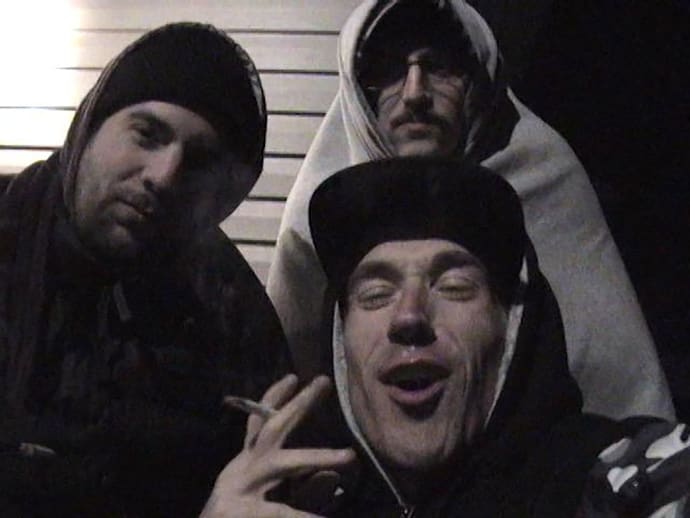
Conner O’Malley in Rap World.
Courtesy of the Los Angeles Film Festival
How did you decide on the venues where LAFM would be held?
Gottlieb: This festival is taking place at [three venues] that are all on the Eastside of Los Angeles, which is an area that, before COVID, did not have as many exciting and diverse venues for independent cinema as it does now. It’s really incredible the way that the landscape of L.A. has shifted and blossomed after quarantine. We really wanted to take advantage of that, both of the excitement around these new venues, but also the burgeoning audience for independent film that you can see almost any night of the week going to these venues.
How do you see LAFM expanding? Do you have bigger goals in mind beyond the size of it now?
Winshall: There’s a really nice needle to thread for us [trying to grow and also] not trying to grow into something too crazy. I’m really happy with the scope of the festival that we’ve tackled. It feels really good to not be a competition festival right now, and to be a selected curated program, and to have kind the scope of films be really manageable. We really want people to feel like they could go see pretty much everything that we’re hosting. I wouldn’t want to lose that going forward.
Speaking to how quickly things sold out, it would be nice to be able to serve a larger audience. That’s something that we’ll be looking at next year. There’s other things we’ve talked about as far as goals go, for what we’d like—but let’s pull this one off first, and then see what happens.







